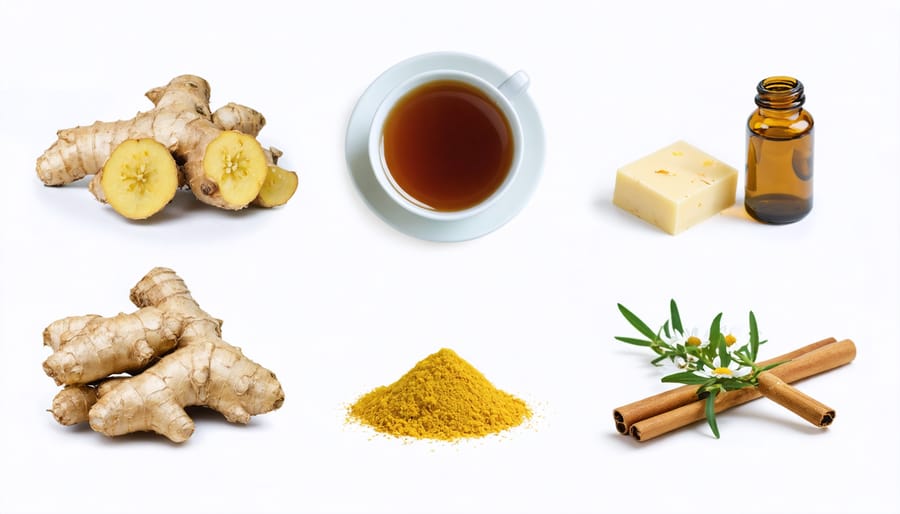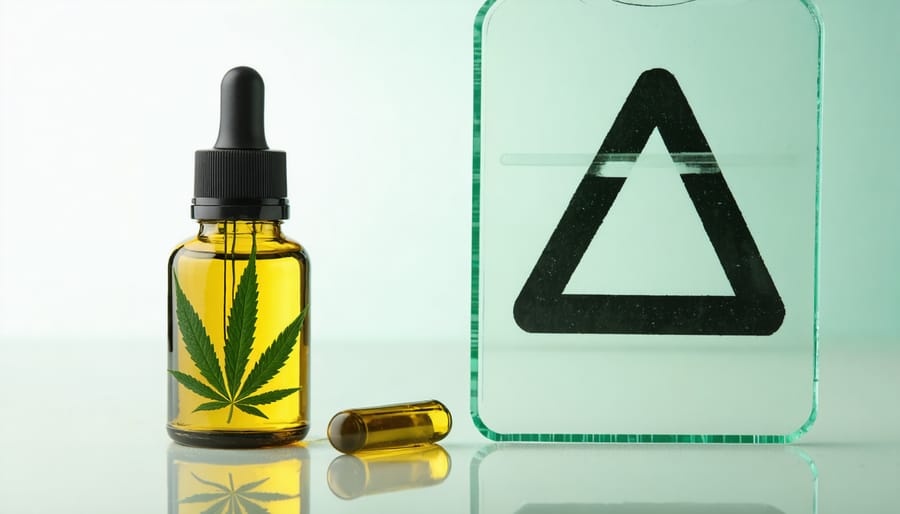During pregnancy, the safety of CBD oil remains a complex and actively researched topic that deserves careful consideration. While many expectant mothers seek natural alternatives for managing pregnancy-related discomfort (just as CBD for dogs Canada has gained popularity for pet wellness), the scientific community maintains a cautious stance regarding CBD use during pregnancy. Research indicates that cannabinoids, including CBD, can cross the placental barrier and potentially affect fetal development, making it crucial for expecting mothers to understand both the known and unknown implications.
Medical professionals generally advise against using CBD oil during pregnancy due to limited long-term safety data and potential risks to fetal development. While CBD’s therapeutic properties for anxiety, nausea, and pain management are well-documented in the general population, pregnancy introduces unique considerations that require extra precaution. Every decision during pregnancy carries added weight, and natural doesn’t always mean safe for your developing baby.
Before considering CBD oil, discuss alternative options with your healthcare provider who can recommend pregnancy-safe methods for managing common discomforts. Your baby’s wellbeing deserves a thoroughly researched, medically-guided approach to symptom management during these precious nine months.
Understanding CBD Oil and Pregnancy
What is CBD Oil?
CBD oil, short for cannabidiol oil, is a natural compound extracted from the hemp plant, a variety of cannabis. Unlike its cousin THC (tetrahydrocannabinol), CBD doesn’t cause any “high” or psychoactive effects, which is why many people find it appealing for potential therapeutic uses.
Think of CBD oil as one of many components found in hemp plants, similar to how oranges contain vitamin C along with other nutrients. It’s typically extracted using specialized processes and then mixed with a carrier oil, such as coconut or hemp seed oil, to create the final product you might see on store shelves.
What makes CBD different from THC is how it interacts with our body’s endocannabinoid system – a complex network that helps regulate various bodily functions. While THC binds directly with certain receptors in this system, CBD works more indirectly, potentially influencing how our body processes its own natural compounds.
You might notice CBD oil products in various forms, from tinctures and capsules to creams and gummies. Each form offers different ways to use CBD, though during pregnancy, it’s essential to discuss any supplement use with your healthcare provider.

How CBD Interacts with Pregnancy
During pregnancy, your body goes through countless changes, and it’s natural to wonder how CBD might interact with these delicate processes. While CBD has gained popularity for various wellness purposes, its effects during pregnancy are still being studied. Research suggests that CBD can cross the placental barrier, potentially reaching your developing baby.
Your endocannabinoid system plays a crucial role in pregnancy, influencing everything from implantation to fetal development. CBD interacts with this system, which is why many expectant mothers are concerned about its use. Some studies indicate that cannabinoids could affect the development of your baby’s brain and nervous system.
As Sarah, one of our community members, shares, “My doctor explained that while CBD helped with my anxiety before pregnancy, the unknown risks to my baby weren’t worth it.” This reflects the current medical consensus – while CBD might offer certain benefits, its impact on pregnancy isn’t fully understood.
Remember, pregnancy is a temporary phase, and your baby’s wellbeing comes first. Before considering any supplements, including CBD, it’s essential to discuss alternatives with your healthcare provider who knows your specific situation.
Current Research on CBD Use During Pregnancy

What Studies Tell Us
Current research on CBD oil use during pregnancy is still limited, with most medical experts advising caution due to insufficient evidence about its safety. While many moms-to-be have shared positive experiences with CBD for morning sickness and anxiety, scientific studies specifically focused on pregnancy are sparse.
A comprehensive review by the American Academy of Pediatrics highlighted that CBD can cross the placental barrier, potentially affecting fetal development. Some animal studies have suggested possible risks to embryo development, though these findings can’t be directly applied to humans.
What we do know is that our bodies’ endocannabinoid system plays a crucial role in fetal development. Any substances that interact with this system, including CBD, could potentially impact the baby’s growth. However, more research is needed to fully understand these effects.
Dr. Sarah Thompson, a maternal-fetal medicine specialist I recently spoke with, explains: “While CBD shows promise for various conditions, we simply don’t have enough data to declare it safe during pregnancy. Until we have more conclusive research, it’s best to err on the side of caution.”
Remember, every pregnancy is unique, and what works for one mom might not work for another. Always discuss any supplements or remedies you’re considering with your healthcare provider, who can help you weigh the potential risks and benefits based on your specific situation.
Medical Expert Opinions
When it comes to CBD use during pregnancy, healthcare professionals maintain a cautious stance. Dr. Sarah Thompson, a maternal-fetal medicine specialist, emphasizes that while CBD shows promise for various conditions, there isn’t enough research to confirm its safety during pregnancy. “We simply don’t have adequate long-term studies to understand how CBD might affect fetal development,” she explains.
Dr. James Martinez, an OB-GYN specializing in high-risk pregnancies, points out that CBD can cross the placental barrier, potentially impacting the developing baby. He recommends that pregnant women seek medical advice for expecting mothers before trying any supplements, including CBD oil.
Research expert Dr. Emily Chen notes that while some studies suggest CBD might help with pregnancy-related discomfort, the risks currently outweigh potential benefits. “We’ve seen promising results for anxiety and nausea relief, but we need more research specifically focused on pregnancy before making any recommendations,” she shares.
Most medical experts agree that until more conclusive research is available, pregnant women should explore traditional, well-studied methods for managing pregnancy-related symptoms. They suggest working closely with healthcare providers to find safe, proven alternatives for addressing specific concerns during pregnancy.
Potential Risks and Concerns
Short-term Considerations
When considering CBD oil during pregnancy, it’s important to understand the immediate concerns that may affect both you and your developing baby. Like other forms of substance use during pregnancy, CBD oil can cross the placental barrier, potentially impacting your little one’s development.
Many moms-to-be turn to CBD oil hoping to ease morning sickness, anxiety, or sleep issues – all common pregnancy challenges we face. However, current research suggests that CBD might affect crucial developmental processes, particularly in the early stages of pregnancy. Some studies indicate it could influence the formation of your baby’s neural networks and potentially affect their future behavior patterns.
Another immediate consideration is the inconsistency in CBD product quality and labeling. What you see on the bottle might not always match what’s inside, and some products may contain trace amounts of THC or other unwanted substances. This uncertainty makes it particularly risky during pregnancy when every ingredient matters.
Remember, pregnancy discomforts are temporary, and there are many proven safe alternatives to help you cope. Always discuss any supplements or remedies with your healthcare provider, who can guide you toward safer options for managing pregnancy-related challenges.
Long-term Development Impacts
When it comes to the long-term effects of CBD use during pregnancy, research is still in its early stages. As a mom-to-be, you want to make the best choices for your baby’s future, and it’s completely understandable to have concerns about how substances might affect your little one’s development.
Current studies suggest that substances used during pregnancy, including CBD, may influence fetal brain development and could potentially impact behavioral and cognitive outcomes later in life. These effects might not become apparent until childhood or even adolescence.
While some moms might be considering continuing CBD use into their CBD while breastfeeding journey, it’s important to understand that what we consume during pregnancy can have lasting effects on our children’s development, including their nervous system, immune function, and emotional regulation.
Remember, every choice we make during pregnancy matters, and while CBD might seem like a natural solution, there are other proven-safe alternatives to manage pregnancy-related concerns. Always consult with your healthcare provider to explore options that prioritize both your well-being and your baby’s long-term health.
Safe Alternatives for Common Pregnancy Concerns
Natural Remedies
While CBD oil may seem appealing, there are several safe, natural alternatives that can help manage common pregnancy discomforts. Ginger tea or candies can effectively combat morning sickness, while chamomile tea (in moderation) can help with anxiety and mild sleep issues. For those struggling with sleep, exploring pregnancy-safe sleep aids and establishing a calming bedtime routine can make a significant difference.
Many moms-to-be find relief from pregnancy aches through gentle prenatal yoga, swimming, or pregnancy massage. Essential oils like lavender (when properly diluted) can help create a relaxing atmosphere, while peppermint oil may ease headaches when used in aromatherapy. Remember to always consult your healthcare provider before trying any new remedies.
Magnesium-rich foods and supplements (with your doctor’s approval) can help with leg cramps and sleep quality. For emotional well-being, practices like meditation, deep breathing exercises, and prenatal support groups provide natural ways to manage stress and anxiety. These alternatives not only help with symptoms but also contribute to overall wellness during your pregnancy journey.

Lifestyle Adjustments
While exploring alternatives to CBD oil during pregnancy, many expectant mothers find relief through natural lifestyle adjustments. Regular gentle exercise, such as prenatal yoga or swimming, can help manage common discomforts and boost mood naturally. Creating a consistent sleep routine and using pregnancy pillows can significantly improve rest quality and reduce physical strain.
For morning sickness and nausea, try eating smaller, frequent meals throughout the day and keeping crackers by your bedside. Ginger tea or peppermint aromatherapy can offer natural relief without any safety concerns. Staying hydrated and maintaining a balanced diet rich in whole foods can also help manage pregnancy symptoms effectively.
Many mothers-to-be find comfort in prenatal massage, acupuncture (with a certified practitioner), or gentle stretching exercises. Stress management techniques like meditation, deep breathing exercises, or joining pregnancy support groups can provide emotional relief without any risks to your baby.
Remember, every pregnancy is unique, and what works for one person may not work for another. It’s worth trying different combinations of these natural approaches while keeping your healthcare provider informed about your choices and concerns.
As we’ve explored throughout this article, the question of CBD oil safety during pregnancy is complex and deserves careful consideration. While some mothers may be drawn to CBD oil for managing pregnancy-related discomforts, current research remains limited, and medical professionals generally recommend avoiding CBD products during pregnancy and breastfeeding.
Your baby’s health and development are precious, and it’s natural to seek safe, effective solutions for pregnancy-related challenges. However, without conclusive evidence about CBD’s effects on fetal development and long-term outcomes, it’s better to err on the side of caution and explore well-studied alternatives under medical supervision.
Remember, every pregnancy journey is unique, and what works for one mother may not work for another. Your healthcare provider is your best resource for personalized advice and can recommend proven, safe options for managing pregnancy-related concerns. They can help you weigh the potential risks and benefits of any treatment approach, taking into account your specific medical history and circumstances.
Before trying any new supplement or remedy during pregnancy, including CBD oil, always consult with your healthcare team. They can guide you toward evidence-based solutions that prioritize both your comfort and your baby’s well-being. You’re not alone in this journey – reach out to your medical providers, who are there to support you in making informed decisions for a healthy pregnancy.



